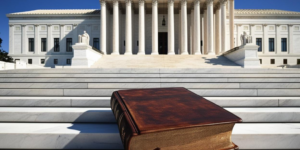A South Korean Rapper, Forgiveness and Restitution
After his YouTube video went mega-viral, the South Korean rapper named Psy received an invitation to sing and dance at a White House Christmas party. But it was quickly learned that in 2004, he had rapped lyrics wishing for the death and torture of American troops in Iraq, along with their families. Psy quickly issued a humble apology to the American people, and the White House reaffirmed that Psy’s show would go on. Was this the right thing to do?
In case you haven’t heard of Psy, his Korean rap video “Gangnam Style” has been viewed more than 900 million times this year, breaking the YouTube record for the most watched video, previously held by Justin Bieber. (As a historical sidebar, if someone from a future generation were to ask us for a snapshot of what America looked like in 2012, we could tell them that 2012 was the year that an utterly inane YouTube video was viewed close to 1 billion times.)
If not for Psy’s overnight, international stardom, few Americans would have known about his presence in anti-American protest videos filmed in 2002 and 2004. In the latter, he rapped lyrics from a song called “Dear America,” written by the South Korean rock band N.E.X.T. saying, “Kill those f—ing Yankees who have been torturing Iraqi captives/ Kill those f—ing Yankees who ordered them to torture/ Kill their daughters, mothers, daughters-in-law and fathers/ Kill them all slowly and painfully.”
Katie Pavlich gives some relevant background: “Since becoming a democracy in the late ’80s, South Korea has developed a rich, sometimes over-the-top, tradition of protest. Swarms of Koreans hit the streets to protest everything from free trade agreements to North Korea to Muslim extremism to American troops stationed on their peninsula. …
“In 2004, a Korean missionary was captured in Iraq by Islamists who demanded that South Korea not send troops to aid America in the war in Iraq. Seoul refused to negotiate and the missionary was beheaded. The result: massive protests throughout Korea against both Muslim extremism and the U.S. military for indirectly bringing this fate upon a Korean missionary.”
Naturally, Americans expressed their outrage upon learning about these videos, questioning how someone like this could be invited to perform at the White House.
Psy immediately issued what sounded like a very sincere apology.
“As a proud South Korean who was educated in the United States and lived there for a very significant part of my life,” he wrote, “I understand the sacrifices American servicemen and women have made to protect freedom and democracy in my country and around the world” (with obvious reference to his own country of South Korea).
He explained that, “The song—from eight years ago—was part of a deeply emotional reaction to the war in Iraq and the killing of two innocent Korean civilians that was part of the overall antiwar sentiment shared by others around the world at that time. While I’m grateful for the freedom to express one’s self I’ve learned there are limits to what language is appropriate and I’m deeply sorry for how these lyrics could be interpreted. I will forever be sorry for any pain I have caused anyone by those words.”
Personally, I believe him; but I don’t understand what he means by “how these lyrics could be interpreted.” What is there to “interpret”? Why muddle an otherwise forthright statement?
He concluded by saying, “I have been honored to perform in front of American soldiers in recent months—including an appearance on the Jay Leno show (The Tonight Show with Jay Leno) specifically for them—and I hope they and all Americans can accept my apology. While it’s important we express our opinions, I deeply regret the inflammatory and inappropriate language I used to do so. In my music I try to give people a release, a reason to smile. I have learned that through music, our universal language we can all come together as a culture of humanity and I hope that you will accept my apology.”
Americans tend to be forgiving people and I hope that, on a national level, we accept Psy’s apology. At the same time, that doesn’t mean that he should be appearing at the White House—at least not yet.
To be sure, to truly forgive is to truly forget, and it could be argued that by the White House reaffirming its invitation, it is offering a wonderful demonstration of American magnanimity.
But wouldn’t it be much more honoring to the courageous Americans whom Psy so irresponsibly defamed to give him a rain check for Christmas 2013, with the understanding that he would spend time over the next 12 months making amends for his ugly words?
He could use his massive fame in South Korea to address the wrong attitudes that fueled some of the extreme anti-American sentiment and he could seek forgiveness directly from American troops and their families. And, with the honor of a White House performance delayed by 12 months, his lesson would be much better learned.
We offer forgiveness; he makes restitution; then he performs—and the American troops and their families are not so grossly dishonored.
Michael Brown is the author of The Real Kosher Jesus and the host of the nationally syndicated talk radio show The Line of Fire on the Salem Radio Network. He is also president of FIRE School of Ministry and director of the Coalition of Conscience.






































